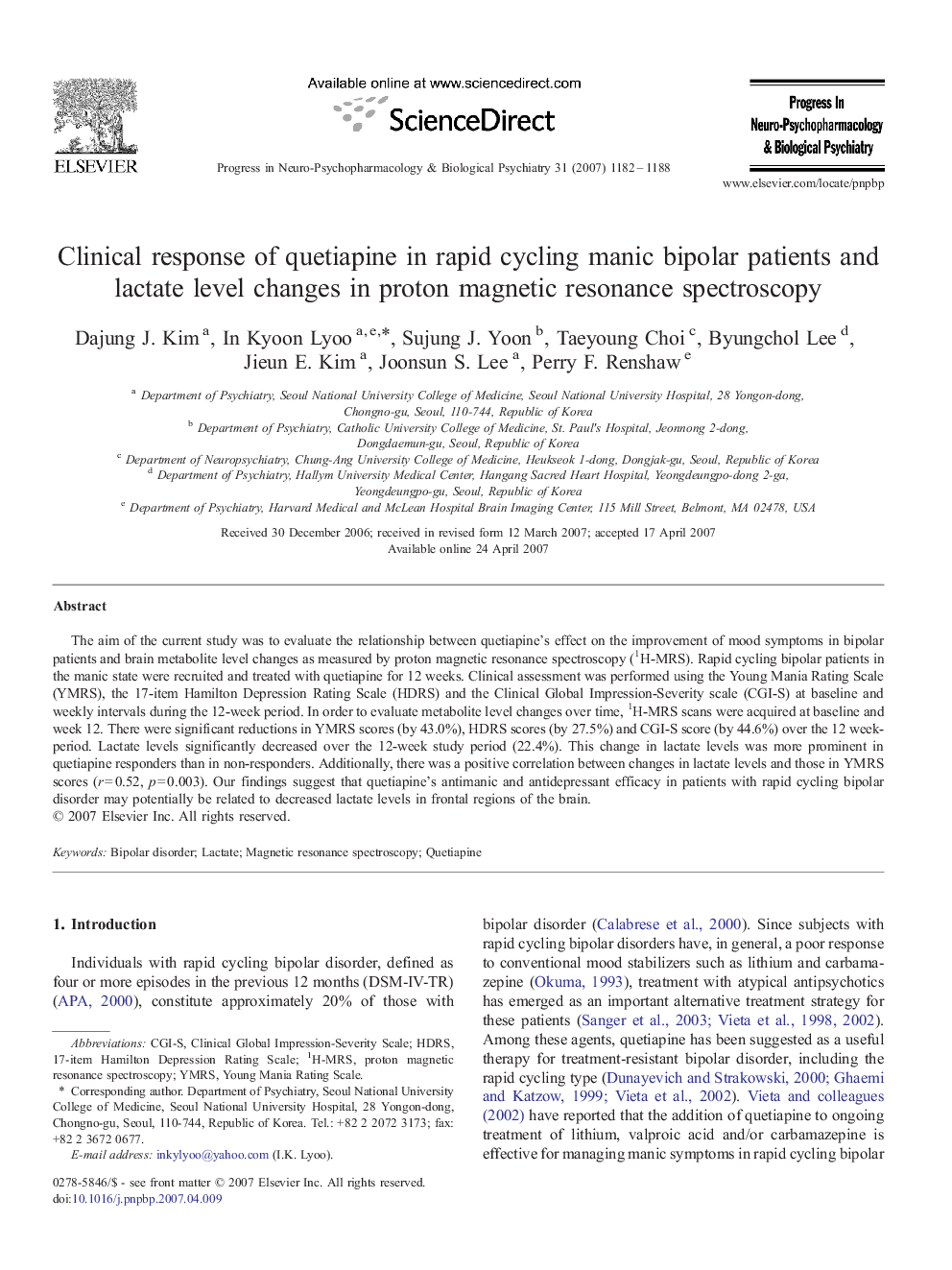| Article ID | Journal | Published Year | Pages | File Type |
|---|---|---|---|---|
| 2566119 | Progress in Neuro-Psychopharmacology and Biological Psychiatry | 2007 | 7 Pages |
The aim of the current study was to evaluate the relationship between quetiapine's effect on the improvement of mood symptoms in bipolar patients and brain metabolite level changes as measured by proton magnetic resonance spectroscopy (1H-MRS). Rapid cycling bipolar patients in the manic state were recruited and treated with quetiapine for 12 weeks. Clinical assessment was performed using the Young Mania Rating Scale (YMRS), the 17-item Hamilton Depression Rating Scale (HDRS) and the Clinical Global Impression-Severity scale (CGI-S) at baseline and weekly intervals during the 12-week period. In order to evaluate metabolite level changes over time, 1H-MRS scans were acquired at baseline and week 12. There were significant reductions in YMRS scores (by 43.0%), HDRS scores (by 27.5%) and CGI-S score (by 44.6%) over the 12 week-period. Lactate levels significantly decreased over the 12-week study period (22.4%). This change in lactate levels was more prominent in quetiapine responders than in non-responders. Additionally, there was a positive correlation between changes in lactate levels and those in YMRS scores (r = 0.52, p = 0.003). Our findings suggest that quetiapine's antimanic and antidepressant efficacy in patients with rapid cycling bipolar disorder may potentially be related to decreased lactate levels in frontal regions of the brain.
